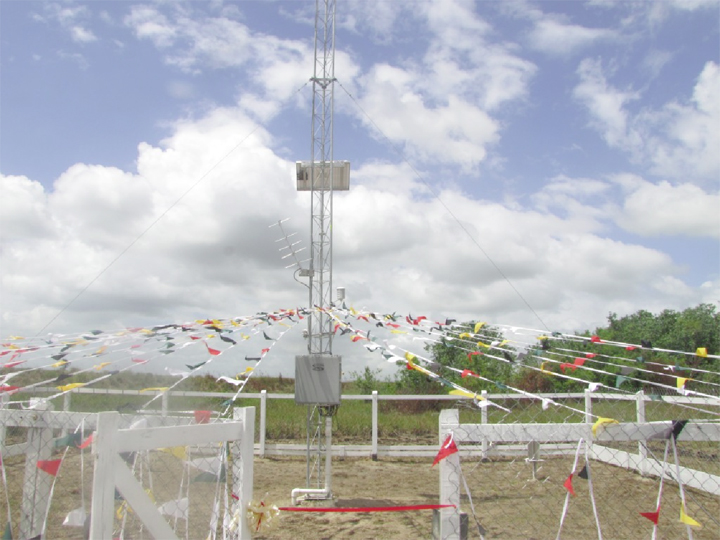The Ministry of Agriculture last Friday commissioned an Automatic Weather Station at Copeman, Region Five, as part of its ongoing drive to automate all weather stations countrywide.
It is the seventh of 10 to be commissioned for the year.
According to a Government Information Agency (GINA) press release, at the commissioning ceremony, Agriculture Minister Dr Leslie Ramsammy noted that while there are several weather stations in every region, most of them are not automated. “Somebody has to go to physically read the information,” he said, adding that this causes delays in getting critical weather information to the public.

Ramsammy further said that government has been collaborating with international agencies and the US, Chinese, Australian and Israeli governments to boost capacity among staff at the Hydromet Service. As a result, he called on government agencies to give first option for training in meteorological and other related services to employees of the Hydromet Service.
The minister also noted the importance of automatic weather stations and the Hydromet Service to the development of agriculture and the local economy. “Agriculture is absolutely and unequivocally dependent on the weather,” he said.
“We saw that clearly in 2005 when we lost 60 percent of our economy because we did not have the right weather and we saw the challenges this year when we saw during the supposed rainy season, we had dry season,” Ramsammy recalled.
The weather station was commissioned to commemorate World Water Day and World Meteorological Day, the latter of which is observed on March 23. To this end, the minister urged farmers to ensure that the water used for agriculture is safe according to the Global Food Regulation for Food Security and Nutrition regulation, pertinent to the traceability of agriculture production.
Region Five boasts most agricultural land under cultivation and farmers have relied on early warning systems and are vigilant about the changing weather patterns. Regional Chairman Bindrabhan Bisnauth said the area has been experiencing rapid changes in weather conditions in recent years, and has been braving the adverse effects.
As a result, he posited that with “agriculture being our main economic base, we all need to endorse this move because it will indeed do us justice since meteorological monitoring is critical to the success of agriculture as a whole.” The automated system will enable the communities to safeguard against flash floods or prolonged drought.










